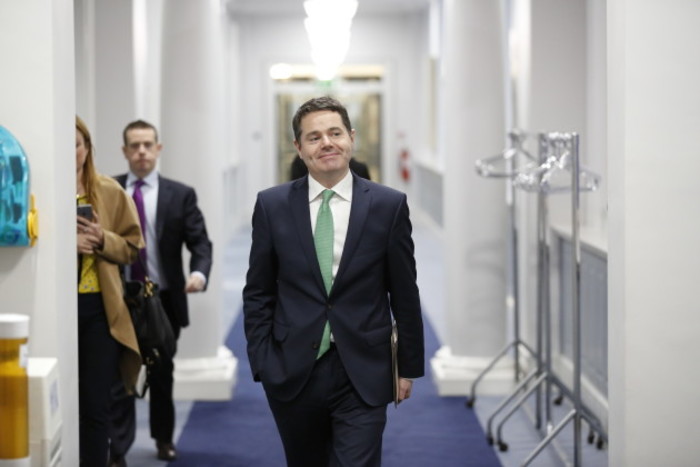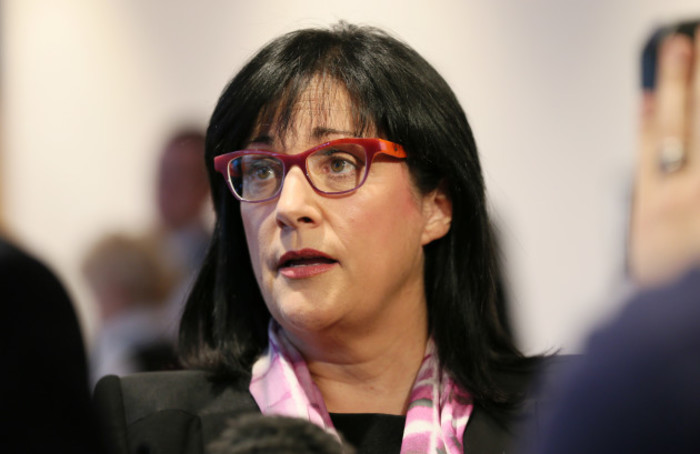Your crash course in... Why businesses are so worried about public sector pay increases
Business lobby groups have said public sector demands are ‘at odds’ with what is affordable.
THERE HAS BEEN a lot of talk the past week of an onslaught of ‘free-for-all’ pay demands from public sector workers.
It comes after garda union members were offered a €40 million deal to defer unprecedented strike action.
Business lobbyists have warned that a Pandora’s box has been opened with other public sector workers likely to want to renegotiate their own pay-restoration packages.
This week, we’re looking at why exactly business owners and employers have been so vocal in their opposition to widespread public sector pay rises - and how they would like to see the government respond to future industrial action.
‘No mandate’
One of the biggest concerns for businesses is where the money to settle the garda pay deal will come from – as well as for other future deals that could be put on the table.
The gardaí’s multimillion-euro package falls outside the €290 million already earmarked for September next year as part of the Lansdowne Road Agreement, a deal that was settled last year to reverse the pay and pension cuts for public servants that were introduced in the wake of the 2008 financial crisis.
“The budget was agreed four weeks ago,” ISME chief executive Neil McDonnell told Fora. ”We’ve agreed how we’re going to spend 100% of the (€1.3 billion) fiscal space, so everything we’ve talked about last week, there is no mandate.
“We’re going to have to fund this stuff with either more tax or more borrowing, which is crazy,” he said, noting that Ireland is already one of the most heavily indebted nations in the OECD.
 Minister for Public Expenditure Paschal Donohoe
Minister for Public Expenditure Paschal Donohoe
Employers group Ibec said before the garda deal was announced that demands from public service workers were already “at odds with the current economic reality and what is reasonably affordable”.
It is not fair to say that the unions haven’t put forward any ideas for how pay increases could be funded without having to borrow money.
Ireland’s largest trade union, Siptu, suggested that if the government culled the tourism sector’s special 9% VAT rate – which general president Jack O’Connor said is unnecessary because “the industry has fully recovered” – it would save the exchequer €600 million every year.
Pay expectations
In the most recent CSO earnings survey, average weekly earnings for private sector workers was €703.83 from April to June of this year, half a percentage point more than the same three-month period last year.
Earnings in the public sector dropped 0.3% to an average of €914.58 per week when temporary census staff were excluded.
The CSO warns against using the figures to make any direct comparisons between remuneration in the two broad sectors due to the different types of roles they typically involve.
However a big concern for employers is that a significant public-private sector wages gap could undermine pay expectations for workers in the private sector and make it difficult for businesses to attract young talent.
Ibec president, Anne Heraty, recently told Fora that “if wages in one sector far outpace wages in another, there is always an impact”.
 Ibec president Anne Heraty
Ibec president Anne Heraty
The group surveyed just over 390 businesses last month and found that the majority of its members – roughly seven in 10 – planned on introducing pay increases next year.
But the survey found that most business owners will introduce modest pay rises, an average 2% increase.
“Most workers will again see positive economic trends reflected in their pay packets next year,” Ibec’s director of employer relations Maeve McElwee said when the report was published, “but we must not lose the hard fought competitive gains of recent years.”
The group said that a significant number of companies “still cannot afford pay rises, but due to record low inflation, the economy as a whole is going through a period of strong real wage growth. This needs to be reflected in pay expectations.”
Many SMEs plan on introducing modest pay increases too, according to ISME’s Neil McDonnell, but most business owners don’t plan on increasing their personal drawings.
After we published our latest readers’ poll, the Association of Higher Civil and Public Servants (AHCPS) issued a statement to Fora from its general secretary Ciaran Rohan.
“Senior public servants are now paid less than our private sector counterparts,” he said, adding that “the adjustment in pay rates during the recession was more severe for those on higher incomes.”
It’s true that senior staff were hit hardest by public pay cuts during the downturn and currently earn less than their private sector counterparts, but it is widely agreed that their generous pension conditions will make up for this loss.
It is also worth noting that data from the Economic and Social Research Institute and CSO suggests that low-and middle-income public sector workers are still paid more than their private sector counterparts, as former ESRI head John FitzGerald noted in his recent Irish Times column.
Public services
Businesses are also worried that if public sector pay will be favoured over the restoration of public services.
McDonnell said that if the Lansdowne Road Agreement is dead, then “we need to understand what the impact on public finance is going to be.”
“Does this mean that every euro of extra tax we take is going to spent on wages? Are we going to do what we did for the last eight years and under-invest in capital? Are we going to stop spending on our roads? Because that’s what happened to us in the naughties when we threw money at the public service, but service levels didn’t increase.”
McDonnell stressed that ISME is not ‘anti-trade union’ and criticised the media for pitting the group against those organisations.
“Although we don’t agree with them, I empathise with those trade union leaders who have kept their members on board with the Lansdowne Road Agreement,” he said.
When asked how he would like to see the government respond to industrial unrest in the public sector, he urged leaders to “hold the line” on the agreement.
“Please, just use common sense,” he said. “Eight years after it all fell down, are we really going to throw it away?”






